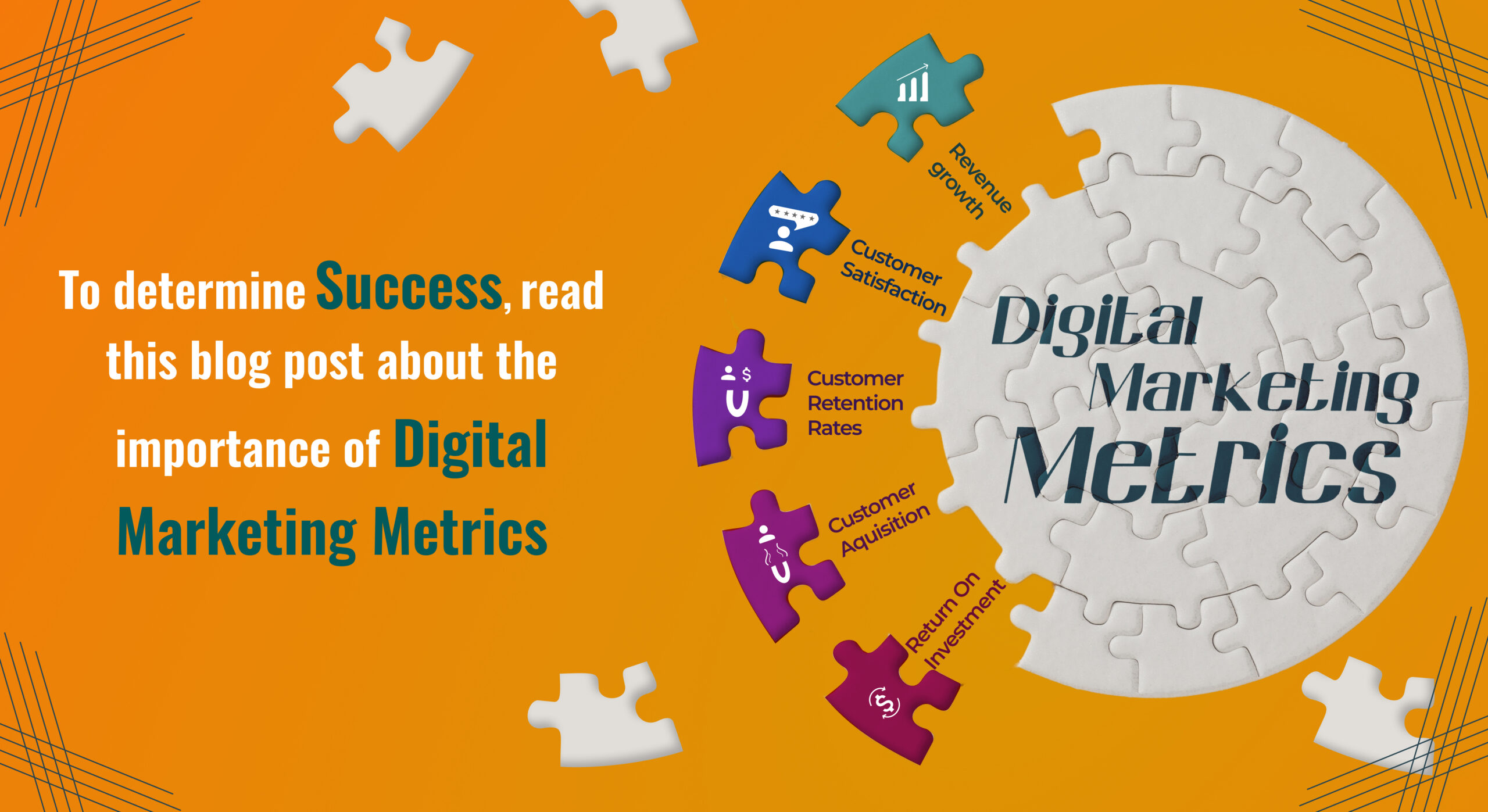If you’re trying to measure the success of your digital marketing efforts, it’s important to track the right metrics. With so many different metrics out there, it can be tough to know which ones matter most and give you the insights you need to optimize your campaigns. In this blog post, we’ll discuss the top digital marketing metrics that you should be tracking to accurately measure your success.
The metrics can be given as follows:
1. Traffic
Traffic is a key metric to measure the success of your digital marketing. It indicates how many visitors come to your website or app each day, and can help you determine how effective your marketing campaigns have been. You can track the volume of website traffic over time to see if your campaigns are gaining traction, or if there’s been a dip in activity.
The number of visits, page views, and unique visitors are all metrics that can be used to measure traffic. Unique visitors are an especially useful metric because it tracks the number of people who are actively visiting your website and how often they are returning. A high number of unique visitors is indicative of a loyal customer base that frequently visits your website or app.
You can also measure the amount of organic traffic (i.e., users coming to your website through search engines) and referrer traffic (users coming to your site through referrals from other websites or apps). Having a good mix of both organic and referrer traffic is important to ensure that your website is reaching the widest possible audience.
By monitoring website traffic over time, you can adjust your digital marketing strategy to reach more potential customers and gain more exposure for your business.
2. Engagement
Engagement is an important metric to measure when it comes to digital marketing success. This includes interactions with your content, such as page views, clicks, and shares. It also includes things like comments and mentions on social media. Tracking engagement will help you understand how people are interacting with your content, and what type of content resonates most with your audience. Additionally, engagement metrics will give you insights into the demographics of your audience, as well as the topics that are most interesting to them.
Tools like Google Analytics can be used to track engagement on your website or blog. This will provide you with detailed reports on which pages and posts receive the most traffic, and what kinds of content are generating the most interaction. Social media analytics tools like Sprout Social can be used to monitor and measure engagement across different social media platforms.
By tracking engagement metrics, you’ll be able to identify which content works best for your audience and how they are interacting with it. This information can be used to inform future digital marketing strategies and create more effective campaigns that will generate greater engagement with your brand.
3. Conversion and ROI
When it comes to digital marketing, conversion, and ROI are two of the most important metrics to measure. Conversion is a measure of how effective your campaigns have been at converting visitors into customers or leads. It is calculated by dividing the number of visitors who have taken a desired action (such as filling out a form or making a purchase) by the total number of visitors.
ROI stands for Return on Investment and measures the effectiveness of your digital marketing campaigns in terms of revenue generated. It is calculated by taking the revenue from the campaign minus the costs associated with running it and then dividing it by the total investment.
It’s important to note that measuring conversions and ROI can be difficult and requires a lot of data to analyze accurately. However, there are tools available that can help you track and measure these metrics, such as Google Analytics and other third-party analytics software.
When looking at conversion and ROI, it is important to look at the overall trends rather than just focusing on individual campaigns or events. For example, if one campaign had a great return but was followed by several that didn’t, it’s important to understand why that might be before deciding to continue with that strategy.
By measuring both conversions and ROI, you can get a better understanding of how successful your digital marketing campaigns are, which will help you make more informed decisions in the future.
Key Takeaways
Digital marketing metrics are essential to measure success and ensure that your campaigns are successful. The metrics you choose to measure will depend on the goals of your campaign and the data you have access to. It is important to remember that no single metric should be taken as the final measure of success or failure. Rather, it is best to look at a combination of metrics to get a complete picture. Traffic, engagement, conversions, and ROI are some of the key metrics that you should consider when measuring the success of your efforts in digital marketing strategy.
Each metric offers valuable insights into different aspects of your marketing efforts and can help you make more informed decisions about how to adjust and improve your strategy. With the right metrics and fruitful use of Search Engine Optimization, you can better understand how effective your campaigns are so that you can make the necessary changes to drive success.

